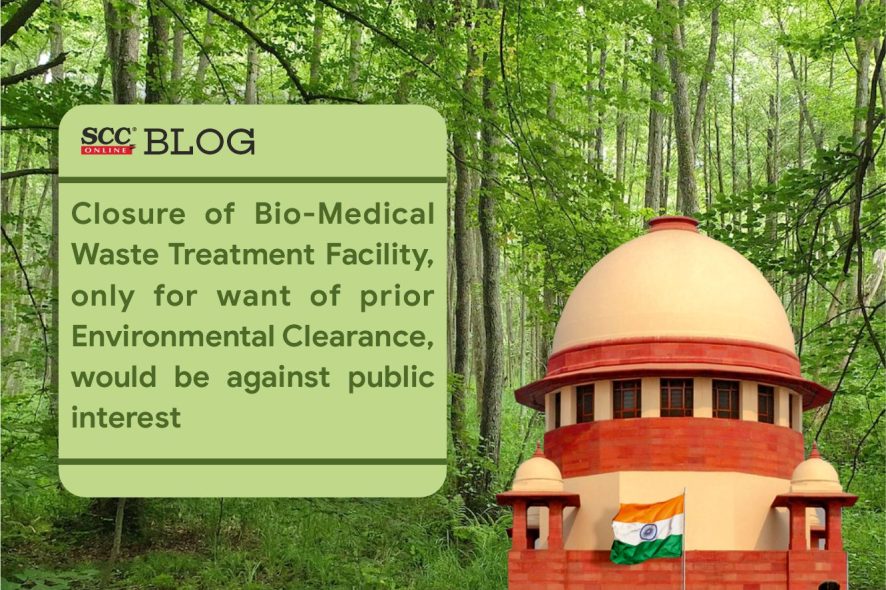Supreme Court: In a case where the closure of a Common Bio-Medical Waste Treatment Facility was sought for want of Environmental Clearance (EC), the bench of Indira Banerjee* and JK Maheshwari, JJ has held that the closure of the facility only on the ground of want of prior Environmental Clearance would be against public interest, especially when the facility was being operated with the requisite consent to operate.
The Court has upheld that the NGT Verdict that when the Bio-Medical Waste Treatment facility of the Appellant was being operated with the requisite consent to operate, it could not be closed on the ground of want of prior Environmental Clearance. It has been observed that,
“This Court cannot lose sight of the fact that the operation of a Bio-Medical Waste Treatment Facility is in the interest of prevention of environmental pollution. The closure of the facility only on the ground of want of prior Environmental Clearance would be against public interest.”
General Rule
There can be no doubt that the need to comply with the requirement to obtain EC is non-negotiable. A unit can be set up or allowed to expand subject to compliance of the requisite environmental norms. EC is granted on condition of the suitability of the site to set up the unit, from the environmental angle, and also existence of necessary infrastructural facilities and equipment for compliance of environmental norms. To protect future generations and to ensure sustainable development, it is imperative that pollution laws be strictly enforced. Under no circumstances can industries, which pollute, be allowed to operate unchecked and degrade the environment.
Ex post facto environmental clearance
Ex post facto environmental clearance should ordinarily not be granted routinely, but in exceptional circumstances taking into account all relevant environmental factors. Where the adverse consequences of denial of ex post facto approval outweigh the consequences of regularization of operations by grant of ex post facto approval, and the establishment concerned otherwise conforms to the requisite pollution norms, ex post facto approval should be given in accordance with law, in strict conformity with the applicable Rules, Regulations and/or Notifications. In a given case, the deviant industry may be penalised by an imposition of heavy penalty on the principle of ‘polluter pays’ and the cost of restoration of environment may be recovered from it
However, the Environment (Protection) Act, 1986 (EP Act) does not prohibit ex post facto EC. Some relaxations and even grant of ex post facto EC in accordance with law, in strict compliance with Rules, Regulations, Notifications and/or applicable orders, in appropriate cases, where the projects are in compliance with environment norms, is not impermissible.
The Court also noted that it cannot be oblivious to the economy or the need to protect the livelihood of hundreds of employees and others employed in the units and dependent on the units for their survival.
“Ex post facto EC should not ordinarily be granted, and certainly not for the asking. At the same time ex post facto clearances and/or approvals cannot be declined with pedantic rigidity, regardless of the consequences of stopping the operations.”
[D Swamy v. Karnataka State Pollution Control Board, 2022 SCC OnLine SC 1278, decided on 22.09.2022]







